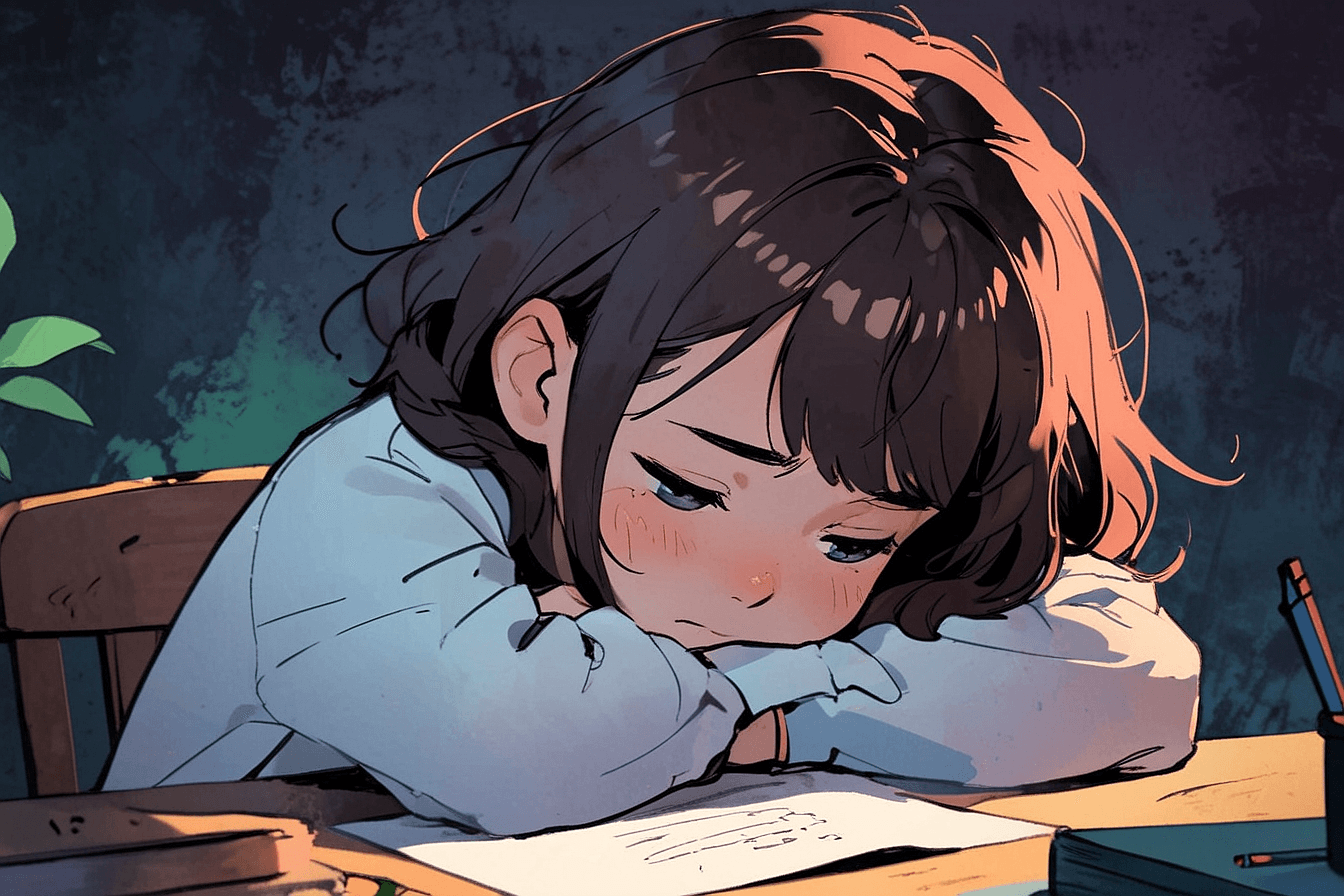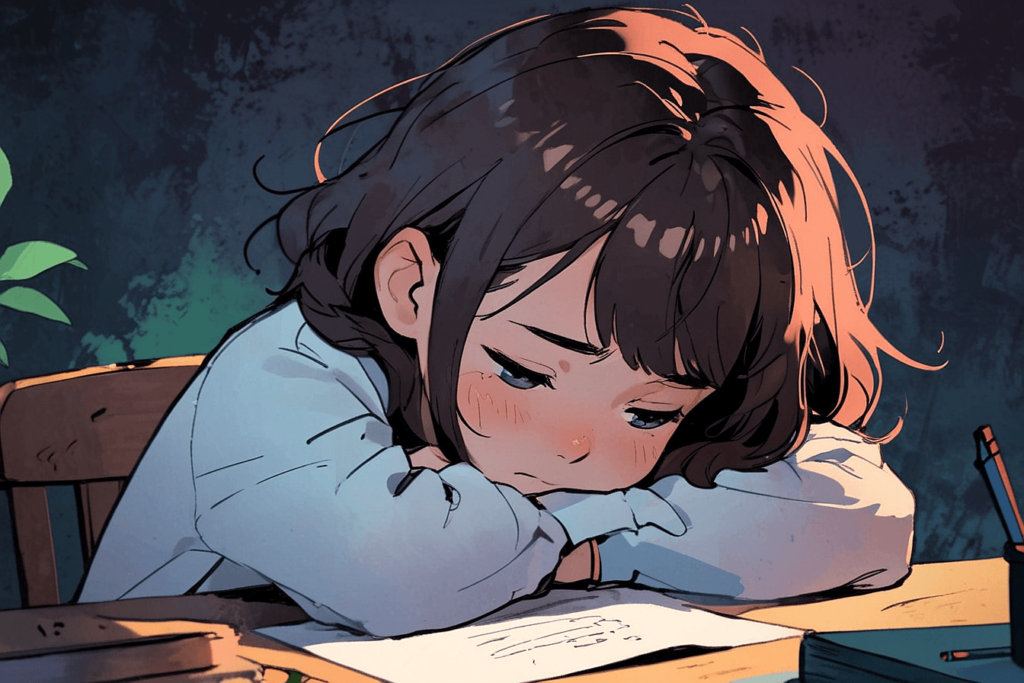Recognizing depression in children is crucial for early intervention. While mood swings are common, persistent feelings of sadness or hopelessness, along with changes in behavior or academic performance, could signal depression symptoms or bipolar disorder. Watch for withdrawal from activities once enjoyed, excessive irritability, or unexplained physical complaints.
If your child or adolescents consistently display a mix of these signs over a few weeks, it might be time to seek professional help. Remember that addressing mental health concerns promptly can lead to better outcomes and improved well-being for your child. Identifying these signs early can significantly affect their overall mental health and quality of life.

Key Takeaways
- Recognizing Early Signs of Depression:
- Pay attention to changes in behavior, mood, and academic performance in children as potential indicators of depression.
- Understanding Childhood Depression Symptoms:
- Familiarize yourself with symptoms like persistent sadness, irritability, changes in sleep or appetite, and loss of interest in activities.
- Preventing Childhood Depression:
- Encourage open communication, healthy coping mechanisms, physical activity, and a supportive environment to reduce the risk of childhood depression.
- Warning Signs of Suicide in Children:
- Take any signs of suicidal thoughts or behaviors seriously and seek immediate professional help.
- Importance of Timely Intervention:
- Early detection and intervention can significantly improve outcomes for children struggling with depression.
- Supporting Children through Depression:
- Offer unconditional love, understanding, patience, and access to mental health resources to help children navigate through their depression.
Recognizing Early Signs of Depression
Persistent Sadness, Irritability, or Anger
Children experiencing persistent sadness, irritability, or anger may be showing early depression symptoms. These emotions can manifest in various ways, such as frequent crying or outbursts.
Changes in Appetite, Weight, or Sleep Patterns
Changes in appetite, weight, or sleep patterns are crucial indicators of depression in children. Watch for sudden weight loss or gain and disruptions in sleeping habits.
Physical Complaints without Clear Cause
Physical complaints like headaches or stomachaches without a clear cause could signal underlying mental illness. It’s essential to address these issues promptly and seek professional help.
Normal Blues vs. Childhood Depression

Mood Swings
Various factors, such as stress at school or social interactions, can cause children to experience normal mood swings. These fluctuations are temporary and typically resolve on their own without significant intervention.
It’s essential to differentiate between these typical mood changes and persistent loss of interest in activities they once enjoyed. When a child consistently shows disinterest in things they used to love, it could be a sign of depression.
Feelings of Worthlessness
While occasional feelings of guilt or worthlessness are common in children, especially after making a mistake, it becomes concerning when these emotions intensify and linger for extended periods. Recognizing when these feelings become overwhelming is crucial for identifying potential depression.
Parents should pay attention to any remarks indicating self-blame or unworthiness that persist beyond what is considered normal for childhood development. Seeking professional guidance can help address these concerns effectively.
Fatigue Levels
Children may occasionally feel tired due to physical activities or lack of sleep. However, when fatigue becomes chronic and impacts daily functioning, it may indicate an underlying issue like depression. Understanding the difference between occasional tiredness and chronic lack of energy is vital for early detection and intervention.
Encouraging open communication with children about their physical feelings can provide insights into their energy levels. Monitoring patterns of exhaustion and seeking medical advice if fatigue persists can assist in addressing any underlying mental health issues promptly.
Understanding Childhood Depression Symptoms
Social Withdrawal
Children experiencing social withdrawal may be showing early signs of depression. They might avoid social interactions, prefer to be alone, or isolate themselves from friends and family. This behavior can indicate underlying emotional distress.
Academic Performance Changes
Academic performance changes can serve as a significant indicator of depression in children. Watch out for sudden drops in grades, lack of interest in schoolwork, or frequent absences. These changes could signal an internal struggle affecting their ability to focus and engage.
Irrational Fears and Excessive Worrying
Irrational fears and excessive worrying beyond what is typical for their age group could point toward childhood depression. Children may exhibit intense anxiety about various aspects of life, leading to persistent feelings of fear or unease. These worries may impact their daily activities and overall well-being.
Recognizing these signs early on can help parents and caregivers provide the necessary support and intervention for children struggling with depression.
Factors Contributing to Childhood Depression
Behavioral Changes
Increased sensitivity to rejection can significantly impact children’s mental health, leading to feelings of worthlessness and contributing to depression. Children who struggle with handling rejection may internalize negative experiences, affecting their self-esteem.
Environmental Factors
Stressful environments, such as experiencing trauma or abuse, can have a profound effect on a child’s emotional well-being. Chaotic family dynamics or exposure to violence at home can create an unstable and unsafe environment for children, increasing the risk of depression.
Genetic Predispositions
A family history of depression can increase the likelihood of a child developing the condition. Biological factors, such as imbalances in neurotransmitters like serotonin, dopamine, and norepinephrine, may also contribute to the onset of depression in children.
Combination of Factors
Childhood depression often results from a combination of various factors working together. For instance, a child with a genetic predisposition to depression may be more vulnerable when exposed to stressful situations at home or school.
Children facing multiple challenges, such as bullying, academic pressure, or social isolation, are at a higher risk of developing depression. Parents and caregivers need to be aware of these potential contributing factors and seek appropriate support for their children.
Warning Signs of Suicide in Children
Recurrent Thoughts
Children exhibiting recurrent thoughts of death or suicide should raise immediate concern among parents and caregivers. Such persistent ideation is a critical warning sign that should never be ignored.
Seeking professional help promptly is crucial when a child starts expressing thoughts of self-harm. These signs can often be linked to underlying issues such as untreated childhood depression, emphasizing the importance of early intervention.
Behavioral Changes
Behavioral changes, such as withdrawal from activities once enjoyed or sudden mood swings can also indicate suicidal tendencies in children. Paying close attention to these shifts is essential for early detection and intervention.
Parents should note if their child starts giving away possessions, saying goodbye as if they won’t see each other again, or engaging in risky behaviors. These actions may signal a cry for help that must be addressed promptly.
Emotional Distress
Emotional distress manifests differently in children, with some becoming more irritable while others exhibit extreme sadness. Understanding these varying emotional responses is crucial in identifying potential suicidal tendencies and providing appropriate support.
It’s important for parents and caregivers to create an open and supportive environment where children feel comfortable expressing their emotions without judgment. Encouraging dialogue can help uncover underlying issues before they escalate.
Preventing Childhood Depression

Healthy Coping Mechanisms
Encourage young children to develop healthy coping mechanisms to navigate challenges and stressors effectively. Teaching them how to express their emotions constructively can significantly reduce the risk of developing depression. Providing outlets for creative expression, such as art or music, can help children process their feelings.
Supportive Environment
Creating a supportive environment at home and school is crucial in preventing childhood depression. Young people should feel comfortable expressing their thoughts and emotions without fear of judgment. Encouraging positive self-talk and reinforcing a sense of self-worth can boost a child’s resilience against negative emotions.
Physical Activity and Balanced Lifestyle
Promote regular physical activity among children to enhance their well-being and mental health. Engaging in sports or outdoor activities improves physical health, boosts mood, and reduces stress levels. Encouraging a balanced lifestyle with nutritious meals, adequate sleep, and limited screen time can improve mental health outcomes.
Advocating for Prevention
Advocate for early intervention strategies that focus on preventing childhood depression rather than solely treating symptoms. By raising awareness about the importance of mental health in adolescents and providing resources for parents and educators, we can create a more supportive environment for young children to thrive.
Approaches to Treating Childhood Depression
Therapy and Counseling
Therapy and counseling are essential treatment options for childhood depression. These approaches involve talking to a trained professional about feelings and behaviors. Children can learn coping skills, understand their emotions, and develop strategies to manage depression better.
Counseling sessions provide a safe space for children to express themselves without judgment. Therapists use various techniques like play therapy, cognitive-behavioral therapy (CBT), or family therapy to address underlying issues contributing to depression. Moreover, involving parents in therapy sessions can help improve family dynamics and support the child’s emotional well-being.
Medication Management
In severe cases of childhood depression where therapy alone may not suffice, medication can be a crucial part of treatment. Doctors may prescribe antidepressants to help regulate neurotransmitters in the brain. It’s important to note that medication should always be used under close supervision by a healthcare provider due to potential side effects.
Antidepressants can help alleviate symptoms such as persistent sadness, irritability, or lack of interest in activities. However, caregivers need to monitor any changes in behavior or mood while the child is on medication. Regular check-ins with the prescribing physician are necessary to adjust dosages if needed.
Multidisciplinary Approach
A multidisciplinary approach involving mental health professionals, caregivers, and educators is highly beneficial in treating childhood depression comprehensively. This collaborative effort ensures that the child receives holistic care addressing emotional and social needs.
Mental health professionals work closely with schools to create supportive environments for children struggling with depression. Teachers and school counselors play a vital role in identifying early signs of depression and providing necessary support within the educational setting. Additionally, involving caregivers in treatment plans helps create consistency in managing symptoms at home.
Importance of Timely Intervention
Early Detection
Early detection of depression signs in children is crucial for timely intervention. Recognizing symptoms promptly allows for early treatment and support.
Prompt identification by parents, teachers, or healthcare providers can prevent the escalation of symptoms. Observing changes in behavior and mood is key.
Timely Treatment
Seeking professional help at the first signs of depression is vital. Consulting a healthcare provider ensures proper diagnosis and treatment planning.
Prompt intervention can significantly reduce the risk of long-term consequences. Studies show that timely treatment leads to better outcomes.
Positive Impact
Timely support is critical for a child’s mental well-being. Providing appropriate interventions can help children cope with challenges effectively.
Early intervention offers children the opportunity to learn healthy coping mechanisms and ensures they receive the necessary care and attention.
Supporting Children through Depression

Emotional Support
Support your child by actively listening to their feelings without judgment. Children with depression need reassurance and validation of their emotions.
Create a safe space where caregivers can openly discuss mental health. Encourage open communication to help families navigate the challenges together.
Nurturing Environment
Encourage children to engage in activities that bring joy and relaxation. Provide opportunities for children to express themselves creatively through art or play.
Establish consistent routines at home and school to provide stability and predictability for kids struggling with depression.
Seeking Professional Help
Consult a mental health professional for specialized guidance. Therapy sessions can equip parents with tools to support their child effectively.
You can reach out to support groups or online resources for additional guidance and insights from other family members experiencing similar experiences.
Final Remarks
You’ve learned to recognize the signs, understand the symptoms, and explore ways to support children facing depression. By identifying these warning signals early on, you can significantly impact a child’s well-being. Remember, your timely intervention and support are crucial in helping them navigate through these challenging times.
Take action today by staying vigilant, offering a listening ear, and seeking professional help when needed. Your understanding and proactive approach can make all the difference in a child’s mental health journey. Let’s work together to create a supportive environment where children feel heard, valued, and empowered to overcome depression.

